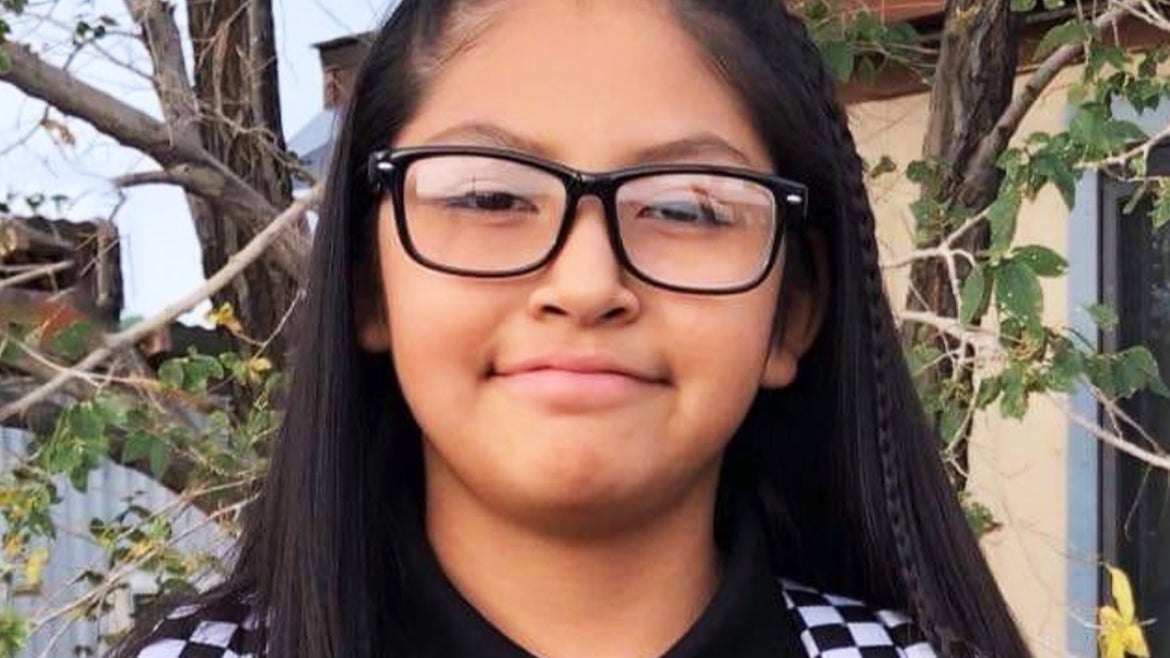Free-roaming dogs, or "rez dogs," are common on tribal lands and can sometimes be a public safety concern.
How did 13-year-old Lyssa Rose Upshaw get mauled to death by a pack of dogs while out for a walk in Navajo Nation? That’s what tribal investigators are still trying to find out.
“Her legs were all chewed up. She was gone,” Lyssa’s mom, Marissa Jones, told the Navajo Times of the moment she found her daughter after the attack in May.
While tribal authorities initially urged people to “avoid speculation” about Lyssa’s cause of death, an autopsy has now confirmed that the middle school student was killed by a pack of dogs, the Associated Press reported.
"I never thought that would ever happen to my daughter," Jones told the AP. "She was a dog lover."
She explained that she had just started making dinner for her family when Lyssa asked if she could go for a walk near the family’s home in Fort Defiance, Arizona, located in the northeastern part of the state, bordering New Mexico.
Jones told her daughter to be home by 5:30 p.m. that evening, and when she didn’t return by 6 p.m., Jones and other family members went out to look for her.
When her elder son called telling her to come quick, “that’s when I knew something was wrong,” she told the Navajo Times.
They found Lyssa in the fetal position with extensive injuries, Jones said, recalling seeing her daughter’s flesh and clothes torn up on the ground around her. The autopsy report later confirmed that her injuries were consistent with canine teeth marks, including cuts, abrasions and deep wounds all over her body, the AP reported.
All the while, as they were on the scene with Lyssa’s body, Jones said she and her family were attacked by a pack of dogs. Jones said she was bitten on the arm during the encounter.
She claimed the home near where her daughter’s body was found “has a bunch of mean dogs, about 20. Everybody knows those dogs are mean,” the Navajo Times reported.
At the time of her death, Lyssa was preparing for her graduation from Tséhootsooí Middle School, and getting ready for her first year of high school, according to her obituary.
“She wanted to get her nails done, her eyebrows done, dye her hair,” her mom told Navajo Times. “She was so looking forward to going to high school next year, and being with her brother, who’s going to be a senior.”
Lyssa’s death was classified as accidental, but the brutal mauling has ignited debate across the reservation about how people should be held accountable for their pets, and to what extent Animal Control should be involved.
“When I was in NHA (Navajo Housing Authority) housing, I just had one pit bull and they made me get rid of it,” Jones told the Navajo Times. “But when you live off by yourself, people have seven, 10, 12 dogs and nobody says anything.”
There are approximately 250,000 free-roaming dogs known as “rez dogs” living on tribal lands, and Lyssa is the fifth person and third child killed by dogs on Navajo Nation since 2010, the Navajo Times reported.
More than 3,000 people a year are treated for animal attacks on reservation, the Santa Fe New Mexican reported.
Criminal Investigations Director Michael Henderson, of the Navajo Nation Police Department, added that while her cause of death has been determined, the investigation into the circumstances behind it continue.
"The case is pretty far from being closed, far from being just put aside as an accident or a civil matter or anything like that," he said. "We're still very aggressively pursuing to understand the case to the extent to where if there are any criminal elements attached to what happened."
Animal control law violations on Navajo Nation are considered civil offenses, and none hold dog owners responsible for deaths, the AP reported. Additionally, the maximum penalty the tribe can dole out is a one-year jail sentence, regardless of the crime.
While tribes often seek federal charges for more severe crimes, as federal charges can carry stiffer penalties, it is unclear whether the FBI will get involved in the investigation into Lyssa’s mauling.
Any donations to Lyssa’s family can be made via Zelle to Delia Nez, who can be reached at 480-569-9113.






